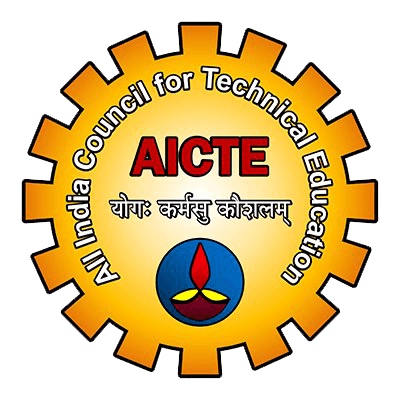PEO, PO & PSO
- PEO I: Global reputation: To create value added, disciplined, high profile Cyber Security professionals for successful careers in their related Industry that makes them globally reputed.
- PEO II: Fundamental Knowledge: To develop the students with a sound foundation in mathematical, scientific and engineering fundamentals necessary to synthesize the technical core concepts focusing on skill development and knowledge up gradation which will lead to technical innovations.
- PEO III. Continuous learning: To practice and demonstrate the ability to use the domain knowledge and expertise through periodic assignments , performances and projects to continuously prove the functionality of Cyber Security learning in social and environmental aspects and to make allowances for further improvements.
Program Outcome (POs)
- Engineering knowledge: Apply the knowledge of mathematics, science, engineering fundamentals, and an engineering specialization to the solution of complex engineering problems.
- Problem analysis: Identify, formulate, review research literature, and analyze complex engineering problems reaching substantiated conclusions using first principles of mathematics, natural sciences, and engineering sciences.
- Design/development of solutions: Design solutions for complex engineering problems and design system components or processes that meet the specified needs with appropriate consideration for the public health and safety, and the cultural, societal, and environmental considerations.
- Conduct investigations of complex problems: Use research-based knowledge and research methods including design of experiments, analysis and interpretation of data, and synthesis of the information to provide valid conclusions.
- Modern tool usage: Create, select, and apply appropriate techniques, resources, and modern engineering and IT tools including prediction and modeling to complex engineering activities with an understanding of the limitations.
- The engineer and society: Apply reasoning informed by the contextual knowledge to assess societal, health, safety, legal and cultural issues and the consequent responsibilities relevant to the professional engineering practice.
- Environment and sustainability: Understand the impact of the professional engineering solutions in societal and environmental contexts, and demonstrate the knowledge of, and need for sustainable development.
- Ethics: Apply ethical principles and commit to professional ethics and responsibilities and norms of the engineering practice.
- Individual and team work: Function effectively as an individual, and as a member or leader in diverse teams, and in multidisciplinary settings.
- Communication: Communicate effectively on complex engineering activities with the engineering community and with society at large, such as, being able to comprehend and write effective reports and design documentation, make effective presentations, and give and receive clear instructions.
- Project management and finance: Demonstrate knowledge and understanding of the engineering and management principles and apply these to one’s own work, as a member and leader in a team, to manage projects and in multidisciplinary environments.
- Life-long learning: Recognize the need for, and have the preparation and ability to engage in independent and life-long learning in the broadest context of technological change.
Program Specific Outcomes (PSOs)
- PSO I: Foundation of Computer System and Cyber Security: Ability to understand the principles and working in the areas related to data communication, networking, digital forensic, cyber defense, cryptography, network security, cyber laws and ethics for the development of Cyber Security solutions.
- PSO II: Applications of Cyber Security: Ability to apply the acquired depth knowledge of Cyber Security to protect and defend computer systems and networks from cyber security attacks.

